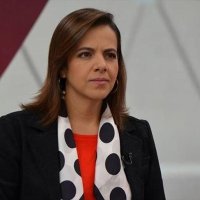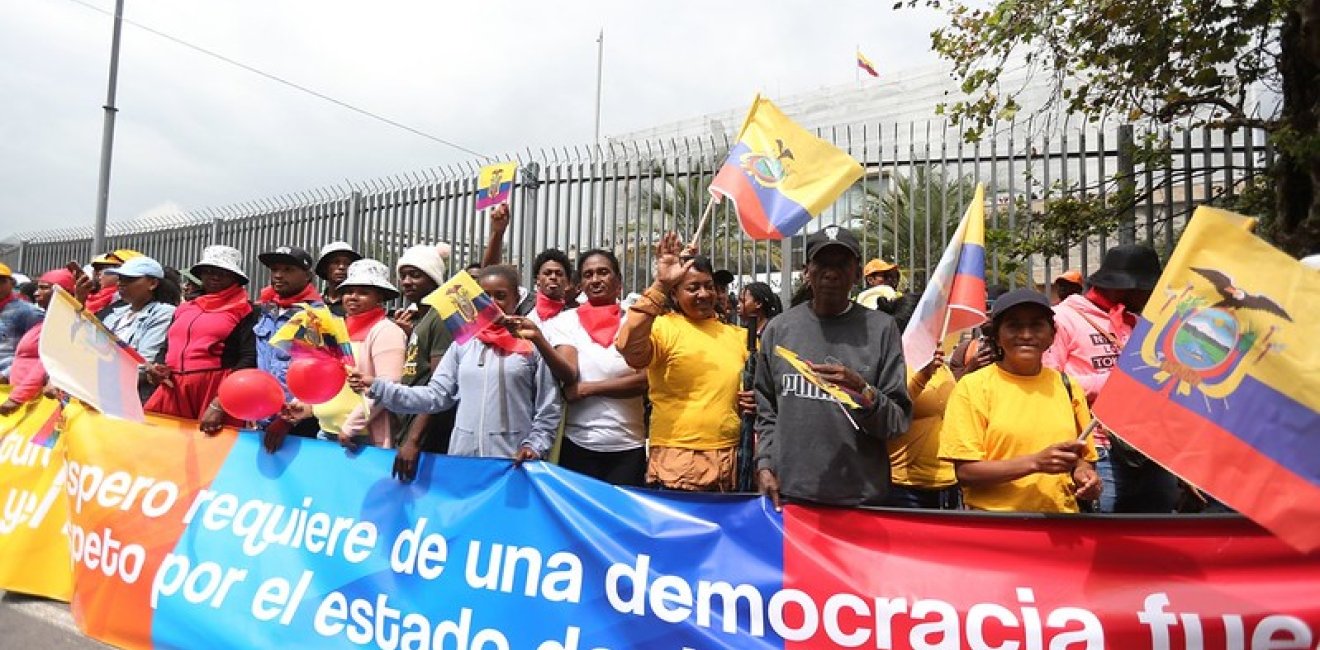
A blog of the Latin America Program
Earlier this month, President Guillermo Lasso, facing an impeachment trial, dissolved Ecuador’s legislature, invoking a provision incorporated into Ecuador’s constitution in 2008 in response to chronic political instability. The provision, known as “muerte cruzada” (“mutual death”), grants the president and the congress the authority to initiate early presidential and legislative elections taking place in August.
Why would Lasso, elected to a four-year term in 2021, opt for early termination?
1. Rafael Correa
The largest political force in Ecuador’s National Assembly consists of lawmakers loyal to former President Rafael Correa, who led the country from 2007 to 2017. Lasso was a prominent critic of Correa’s charismatic and populist leadership, in a period when Ecuador borrowed heavily, especially from China, and saw its democracy strained by Correa’s authoritarian instincts, manipulation of the judiciary and persecution of the press and political opponents.
Correa appears poised for a political comeback.”
Correa’s successor, Lenin Moreno, embarked on a path of democratic and institutional recovery that included investigations into corruption and abuse of power in the previous administration. In 2020, an Ecuadorian court found Correa guilty of involvement in the Odebrecht bribery scheme and sentenced him to eight years in prison. Correa’s former vice president and several of his ministers were also convicted for this and other related crimes. At the same time, investigators began reviewing sentences in cases that had targeted Correa’s political opponents.
Amid the investigations in his conduct, Correa moved to Belgium. Now, however, he appears poised for a political comeback. During Lasso’s nearly two years in office, Correa’s allies have succeeded at thwarting the president’s agenda, dominating local elections and halving Lasso’s term.
2. Security Crisis
Security has experienced a significant deterioration throughout the region, but the situation in Ecuador is particularly alarming. The homicide rate has quadrupled in just two years, transforming the country from one of the least violent in the region to one of the most violent on the planet. Murders, both inside and outside prisons, have become gruesome spectacles that undermine confidence in government.
Lasso has struggled to control conflicts between drug trafficking organizations, including Mexican cartels, fighting for control of territory and Ecuador’s ports – crucial routes to transport narcotics from Colombia and Peru to the United States and Europe. Worse, the expansion of organized crime has compromised Ecuador’s judiciary, further harming Lasso’s reputation.
3. Mismanagement
Security was not Lasso’s only challenge. His cabinet – primarily composed of individuals from the private sector – faced a steep learning curve. That inexperience, and the implacable opposition in congress, deprived Lasso of any meaningful public policy successes.
Security was not Lasso’s only challenge. His cabinet – primarily composed of individuals from the private sector – faced a steep learning curve.”
As a result, the government struggled with even basic responsibilities, including budget execution in sectors such as energy and public works. This occurred during a period of limited domestic and foreign investment, and in a country struggling to recover from the economic fallout of the pandemic, where poverty and unemployment have been rising.
4. Underestimating One’s Adversary
Lasso underestimated his adversaries, sometimes struggled to recognize opponents, often avoided confrontation, and habitually overestimated his political strength and popular support. Meanwhile, he rapidly lost allies and missed opportunities to build agreements and establish a coalition.
Perhaps his biggest misjudgment was his decision to organize a national referendum in February on constitutional reform. Voters seized on the opportunity to punish Lasso, rejecting all eight proposed reforms. That misstep was costly; the results badly weakened the president, and the failed effort distracted Lasso from local elections, allowing the opposition to set the tone of the campaign.
What’s Next?
Ecuadorians will head to the polls on August 20 to elect a president and legislators, who will serve for the remainder of the government’s term, until May 2025. The elections will take place in a hyper-polarized, politically fragmented environment, and feature a complicated web of candidates. Candidates must register by June 10, but informally, the campaign has already begun. Issues related to security and Rafael Correa’s legacy will dominate the public debate.
The unexpected presidential and legislative campaigns are putting the maturity of the Ecuadorian political class to the test, and challenging the patience of Ecuador’s electorate.”
The unexpected presidential and legislative campaigns are putting the maturity of the Ecuadorian political class to the test, and challenging the patience of Ecuador’s electorate. The outcome remains uncertain, with important implications for the health of the country’s democracy and the government’s capacity to address the needs of the Ecuadorian people.
Author


Latin America Program
The Wilson Center’s prestigious Latin America Program provides non-partisan expertise to a broad community of decision makers in the United States and Latin America on critical policy issues facing the Hemisphere. The Program provides insightful and actionable research for policymakers, private sector leaders, journalists, and public intellectuals in the United States and Latin America. To bridge the gap between scholarship and policy action, it fosters new inquiry, sponsors high-level public and private meetings among multiple stakeholders, and explores policy options to improve outcomes for citizens throughout the Americas. Drawing on the Wilson Center’s strength as the nation’s key non-partisan policy forum, the Program serves as a trusted source of analysis and a vital point of contact between the worlds of scholarship and action. Read more

Explore More in Weekly Asado
Browse Weekly Asado
Dengue Haunts South America’s Summers

Lessons from Costa Rica’s Economic Transformation

Women and Latin America’s Digital Revolution

